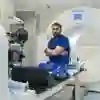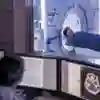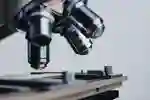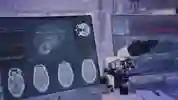



This course is now closed to applications for September 2026 entry.
This two-year accelerated degree is the first in the country. That means that you'll graduate quicker, ready to make a real difference to your patients' lives.
The demand for medical imaging is rising fast, and imaging technology is developing at an incredible speed. This course will equip you with the skills to rise to the challenge.
About this course
Diagnostic Radiography (medical imaging) is one of the most high-tech parts of modern healthcare and nearly every patient has some form of medical imaging to help diagnose their condition or to monitor their treatment or disease.
This means that the demand for medical imaging like X-rays, CT scans, MRI scans, ultrasound and scans using radioactive tracers is rising fast, and imaging technology is developing at an incredible speed.
Alongside the care skills required, diagnostic radiography is a science and technology-based discipline. Over the two years of this accelerated degree programme, you'll learn about the human body and medical imaging science, techniques and technology alongside the patient care skills needed to deliver high quality compassionate care.
You'll be trained to use cutting-edge technology to produce and process images of internal body structures like the bones, blood vessels and organs, or provide real time imaging to guide lifesaving surgery like the removal of a blood clot causing a stroke.
And then you'll put everything you've learned into practice in clinical placements, training alongside and supported by healthcare professionals and specialists as a valued member of their team.
When you graduate, you'll be eligible to register with the Health and Care Professions Council (HCPC).
Discover more about health placements - learn why they matter, explore potential destinations, and hear first-hand feedback from fellow health students.
A degree
that lives up
to life's challenges.
Module options
Each year, you’ll study nine modules worth a certain number of credits. You need 180 credits in first year and 200 in your second year. Most modules are 20 credits. Your Research Project, which you undertake in your second year is worth 40 credits.
Filters
Imaging 1: Appendicular and Axial Skeleton, Chest and Abdomen
Learn about the regional anatomy of the human body, focusing on the appendicular and axial skeleton, chest, respiratory system, and abdomen. Understand their anatomy, physiology, and pathology. Get introduced to radiographic positioning and terminology to develop radiographic techniques and improve patient care.
core
20 credits
Preparation for Practice and Evidence Based Practice
Gain knowledge of healthcare principles and evidence-based practices for safe and effective clinical care through this module. Prepare to work with the NHS, embodying its constitution and core values. Develop essential personal skills such as resilience, constructive feedback response, communication, and teamwork within the inter-professional healthcare team.
core
20 credits
Principles of Imaging and Radiation Protection
Learn the scientific principles of X-ray production, its interaction with body tissue and the capture of the emergent X-ray beam, and associated radiation protection legislation. Develop essential knowledge of X-ray equipment, image acquisition, and manipulation techniques.
core
20 credits
Practice Placement 1
Apply your theoretical knowledge in hands-on clinical practice, honing radiographic skills for your first year. Bridge theory with practice through experience in imaging departments alongside supervising radiographers. Conduct radiographic exams on the musculoskeletal system, thorax, and abdomen. Refine your interpersonal skills with staff and patients, and gain insight into your role in patient care and safety protocols.
core
20 credits
Imaging 2: Gastrointestinal and Hepatobiliary Systems
Understand the anatomy, physiology, and pathology of the gastrointestinal and hepatobiliary systems. Build on your knowledge of radiographic projection imaging and learn common procedures for imaging these systems. In practice placements, link theory with practice through tutorials by practice educators and specialists.
core
20 credits
Imaging 3: Cardiovascular, Urinary and Reproductive Systems
Understand the anatomy, physiology, and pathology of the cardiovascular, urinary, and reproductive systems. Build on your radiographic projection imaging knowledge and learn various imaging procedures for these systems. In practice placements, link theory with practice through tutorials by educators and specialists.
core
20 credits
Imaging 4: Trauma, Orthopaedic and Mobile Imaging
Master orthopaedic and trauma imaging of the chest and appendicular skeleton by understanding conditions, adapting techniques, and interpreting images. Evaluate this area of radiography to enhance diagnostic efficacy. Gain insight into radiographic support in complex surgical procedures and explore the diverse role of the radiographer in the multidisciplinary team.
core
20 credits
Research Methods
Prepare and complete a small action research project to develop skills that will help you across your studies. It's hands-on learning about research methodology, ethical approval, data analysis and formulating research questions.
core
20 credits
Practice Placement 2
Apply your knowledge from Level 5 Imaging modules through structured practice placements. Use your understanding of endocrine and central nervous systems in a practice setting. Build on Level 4 experience to gain competence in trauma, orthopaedic, and mobile imaging techniques. Work with practice educators and supervising practitioners to use various imaging modalities, focusing on image acquisition and manipulation.
core
20 credits
Our facilities



Watchlist
Degrees that live up to life
Course montage
1 min
BSc Diagnostic Radiography
Course overview
2 mins
Life on campus
University life
2 mins
The Gold Standard for Teaching
University life
1 min
Teaching Facilities
University life
2 mins
Featured academics
Our world-leading academics specialise in areas including cancer imaging, cardiovascular, haemostasis, diabetes, metabolism, respiratory and wound healing.
Researchers in our Biomedical Institute for Multimorbidity carry out work to understand the complex interplay between disease.

Zach North
Senior Lecturer in Advanced Clinical Practice
Zach started as a student at Hull in 2006, going on to hold leadership positions within the NHS. Now a programme and academic lead at postgraduate level, he teaches on a range of courses, including Clinical Practice and Advanced Practice.

Dr Dan Hampshire
Lecturer in Genetics
Dan’s research identifies genetic factors that contribute to our susceptibility to bleeding and thrombosis. And the role these can play in determining clinical outcomes for patients with acute coronary syndromes following treatment.
Entry Requirements
What do I need?
This course is currently available through Clearing, which means our entry requirements are a bit different to what they would normally be.
At Hull, you're a name not a number. During Clearing, we look at all of your qualifications and experience, not just your academic grades. We may be able to offer you a place whatever your situation. Get started by completing our eligibility checker, and find out immediately if you could study at the University of Hull.
Have questions? Our admissions team will be happy to help.
Fees & Funding
How much is it?

Future prospects
A Diagnostic Radiography degree from Hull equips you with highly sought after skills and experience for a career in radiography in the NHS and beyond. And this accelerated course means that you'll be working with patients even sooner.
You’ll be eligible to work in health services like the NHS, as well as in the Armed Forces and private providers. Your experience will open doors to specialist, advanced practitioner and consultant radiographer roles as well.
Outside of health services, there are opportunities in sectors like industrial, veterinary and forensic radiography.
Become part of the next generation of futuremakers
Like what you've seen? Then it's time to apply.
The standard way is to apply through UCAS. This will give you the chance to showcase your skills qualities and passion for the subject, as well as providing us with your academic qualifications.
This course is now closed to applications for September 2026 entry.
Not ready to apply yet?
Visit our next Open Day, and see all that the University of Hull has to offer. Talk to our lecturers about your subject, find out what university is really like from our current students, and take a tour of our beautiful campus and amazing facilities.
You may also be interested in...
100% employability (Perioperative Care) UK domicile full-time first degree leavers; Higher Education Graduate Outcomes statistics, for the academic year 2022/23, published by the Higher Education Statistics Agency June 2025.
All modules presented on this course page are subject to availability and this list may change at any time.